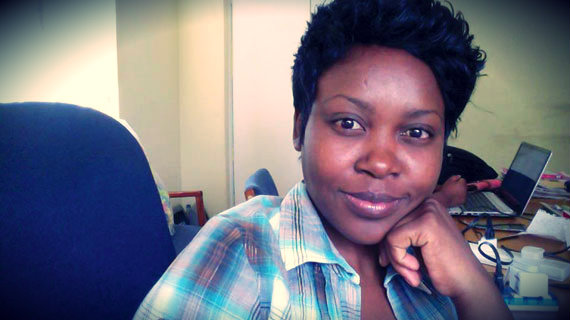
SO many Zimbabweans live abroad today and from wherever they are in the world, they hurl insults at the political leadership that has presided over the economic decline of this country.
Delta Milayo Ndou
We’re all allowed to vent our anger of course, but that kind of venting yields nothing if it cannot translate to transformative action — the kind of action that changes the status quo.
Zimbabweans are great problem solvers, I have discovered. Their default approach to dealing with the country’s declining fortunes over the years has been to take action. The problem is that the actions they often opted for were meant to relieve their discomfort, alleviate their suffering and not necessarily to end it.
Confronted with an economic meltdown, most people who could afford it solved that problem by packing up their bags and leaving the country.Problem solved.
Those who owned nothing and had no bags to pack simply packed their courage and braved crocodile-infested rivers, barbed wires and left the country to settle in hostile lands where they assumed fake identities and built a life based on lies.Problem solved.
Those who could not leave the country (for whatever reason) stayed and joined the swelling mass of individuals who milked the crisis for all it was worth becoming wheelers, dealers and proud profiteers of the highest order. Problem solved.
- Chamisa under fire over US$120K donation
- Mavhunga puts DeMbare into Chibuku quarterfinals
- Pension funds bet on Cabora Bassa oilfields
- Councils defy govt fire tender directive
Keep Reading
We are piecemeal problem solvers and our biggest problem has always been that we have had options. In the presence of other options and alternatives, we have not been interested in risking our marginal comfort to challenge or change the political status quo.
This is especially the case with my peers and our generation of Zimbabweans whom one youth leader once described as “a generation that has failed to recognise, understand or fulfil its assignment”.
Every generation has an assignment and that assignment is usually determined by the unique challenges it is forced to confront.
Our parents confronted the challenges of racism under a system of white minority settler rule and they gave themselves the assignment of fighting the status quo, rebelling against it and liberating themselves.
Today most people of my generation have no qualms making fun of war veterans and criticising the political system under which injustice, gross human rights violations, poverty and violence have thrived, but then we do not take responsibility for it in any way.
I remember writing on my blog: “Someone once said, the tragedy of Zimbabwe today is that its people have lost the capacity to imagine a better future.”
The sentiment haunted me for a long while. My initial reaction was denial. I wanted to argue that this was a falsehood.
I wanted to say: “I have always imagined a better future”, but I realised that saying so would be a half-truth. Because while it’s true that I have always imagined a better future (being the incurable dreamer that I am) . . . it’s truer to state that I have always imagined a better future for myself.
Imagining a better future for my country though, is an entirely different matter. I cannot in all earnest say that I have ever applied myself to imagining a better future for Zimbabwe, partly because I am afraid to hope, partly because I am afraid to care too much about it because caring would make me obligated to act.
Caring would make me obligated to do something. Even a small thing, partly because I didn’t know what to do. Even when others suggested what could be done and their suggestions were great, I let myself be smothered by the futility of trying to change things. Despair is easier than hope, far more comfortable and far less risky.
But I have done a bit of traveling and regardless of where I set my foot, I could never shake off that intuitive sense that I don’t really “belong”.
The irony has never escaped me that I am so much more protective of my country when I am outside its borders than when I am within. From within, challenges facing Zimbabwe are overwhelming, seemingly insurmountable and the tyrannical politics that permeate into every aspect of our lives appears immutable.
But this is home. If I leave, where will I go? If I have the courage to pack up everything and leave, shouldn’t I at least spare a little bit of that courage to stay and TRY? Try to make a difference no matter how small? Perhaps when added to all the other small differences others have made, my small contribution will amount to something BIG. I don’t know.
But I am prepared to try. I have a country to lose and that should give me sufficient reason to begin imagining a better future. I will start by voting in the forthcoming elections.
Maybe they’ll be rigged, but maybe the rigging will be offset by the sheer numbers of first-time voters such as myself, who’ve decided that the country’s problems can’t be solved by folding our hands and adopting a wait-and-see attitude. But I could be wrong. We can always agree to disagree.










